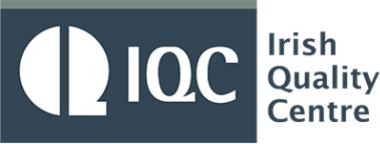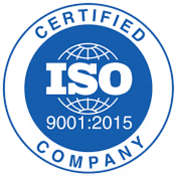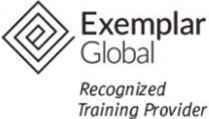Lean Six Sigma Black Belt – 5 Days
Virtual Classroom 2020 Dates Class Times: 9:30 to 16:00

"Taken from Financial Times Guide to Lean".
Location: Virtual (online) Classroom Training
€1600
Lean Black Belt Course
The Lean Black Belt training and certification program will equip participants with the technical competencies, team leadership skills and change management skills to lead Lean projects using the Lean Principles methodology. The 10-day program will cover the most contemporary process improvement practices adopted by leading organisations and proponents of Lean Transformation in manufacturing, service, healthcare, financial, public sector as well as many other industries.
Business success in any organisation requires vision, products and services that add value, processes that are efficient, people who are competent and a culture that supports the behaviours of improvement and development. This course will address all these aspects with a significant focus on the cultural change and the role of the Lean Black Belt in the facilitation, change management and application of the tools to change a culture.
The role of the Lean Black Belt is a business improvement professional that is able to support the Lean implementation journey in organisations, including assisting systems and tools implementation. They possess the ability to mentor multiple teams, monitor performance of all activities and engage leadership support to deliver genuine business improvements.
This programme will run over 10 months and will focus heavily on the application of the practices rather than their academic understanding.
The course covers the phases of a typical Lean Transformation utilising Lean Principles.
The methodology follows a structured sequence of problem solving techniques and cultural change management to arrive at a solution. Cultural facilitation embeds that change.
Program Outline
Day 1 Lean Principles and Overview
• Enterprise-wide overview
o history, foundations, integration with other improvement philosophies
o Core practices
• Lean Transformation Roadmap
• Lean Assessment
• Hoshin Kanri strategy deployment
Day 2 Lean Leadership
• Leadership versus Traditional Management
• Behavioural Standards to Live Our Values
• Managing Conflict
• Managing Conflict Role Play
• Managing Difficult Staff and Poor Behaviours
• Motivating Staff
• Employee Engagement Practices (Everybody Everyday Engaged)
• Employee Engagement Exercise
• Emotional Intelligence
• Communicating Up & Down the Organisation
• Working as an Effective Team – Key Practices to Master
• How to Delegate Effectively
• Supervisor Best Practice Leadership – A Day in the Life of (DILO) a Team Lead
• Develop My DILO
Day 3 Managing for Daily Improvement and Culture
At a high level – this involves 4 practices:
a) Leader Routines – structured activities by line management to support the lean process, examples include but not limited to: attendance at daily stand-ups, 5S weekly audit, employee idea implementation support, problem solving, auditing of hourly boards and corrective action of issues, auditing of autonomous maintenance, etc.
b) Visual Controls – hourly boards, equipment/tool foot printing and shadowing, visual metric boards, visual process confirmation audits, visual employee idea system, etc.
c) Daily Accountability – 15 meeting morning stand-up, example agenda – (would be tailored to local culture needs):
1. Review Due Issues on Accountability Board – 2 minutes
2. Review Safety, Quality, Cost/Productivity, Delivery and People Metrics – 6 minutes
3. Team Leads Update – Issues Last 24 hours – 2 minutes
4. What’s Up – Good News, Idea Update, Training Tip of the Day – 2 minutes
5. Round Table, recognition, issues, where are you stuck/need help – 3 minutes
d) Process Discipline – process confirmation via line management daily structured Gemba walks and director/management weekly waste walk, weekly audits on 5S compliance, etc.,
• Culture Characteristics
Day 4 Process Diagnostic
• Mapping
Systems Mapping
Value Stream Mapping
Process Mapping
Customer Journey Mapping
• Project Mapping
Day 5 Industrial Engineering
• Process Flow
• Theory of Constraints
• OEE Improvement Exercise
• Production Preparation Process (3P)
• Lean Layout/Line Balancing/Cellular Manufacturing Fabrication/Assembly
• Time & Cost Consequences
• Waste Awareness
• Stand In the Circle
• Motion Economy & Video Exercise
• Therbligs
• Activity Sampling/DILO
• Toyota Kata
• Standard Work Combination Chart and Standard Timing’s Discussion
• Training Within Industry Cards
• Lean Ergonomics
• Project Progress Checkpoint
Day 6 Advanced Problem Solving
• Problem Receptive Culture
• What is Root Cause Analysis?
• Problem Classification System
• 5 Basic Quality Tools
• Mistake Proofing
• A3 Systematic Root Cause Problem Solving
• FMEA
Pulling It All Together with Systematic A3 Problem
• Who owns the problem?
• What is the problem?
• What are the symptoms?
• Impact?
• What is the background - What are you talking about & why? What are the current conditions?
• What are the root causes of the problem?
• What is the specific improvement in performance you need to close the gap?
• What are possible countermeasures for the problem?
• How will you choose which fix to propose?
• What is the cost and benefit of the selected countermeasure?
• What is the implementation plan and schedule?
• How will you know if your plan is working?
• What problems are likely to occur during implementation?
• How will you ensure follow up & continuous improvement?
• Project Progress Checkpoint
Day 7/8 Core Improvement Practices
• 5S
• 4 Levels of Visual Workplace
• Autonomous Maintenance / TPM
• Quick Changeover / SMED
• Kanban/Pull Systems
• Kaizen Events
• Kaizen and Kaizen Blitz
• Project Progress Checkpoint
Day 9 Innovation Management
• Creativity & Innovation Principles
• Core Engineered Creativity Practices
• Creatine Culture
• Lean Start-up & NPD Roadmap
• Case Study
• Using the practices workshop
• Project Progress Checkpoint
Day 10 Design for Manufacture/Value Engineering
• Lean Development and Design
• Satisfying BOTH Customer Needs and Company Needs
• The Big Room – Colocation and Collaboration
• Design for Manufacture & Assembly Principles
• Good Design Practices and Examples
• Translating Customer Problems to Design Requirements
• Value Engineering
• Case Study
• Project Progress Checkpoint
Attendees
This Lean Black Belt Training Course is recommended for all those in an organisation who will lead medium or large improvements and who will act as coaches or mentors to others involved in the improvement programme. It is suitable for managers, internal consultants, change agents, project managers, team leaders, business improvement leaders or facilitators.
Pre-Requisites
It is a pre-requisite that participants possess a Lean Green Belt or equivalent and have identified a significant improvement project that they will implement over the course of the course. Minimum classroom attendance is 80%.
Additional Requirements
• Process improvement/cost savings (circa €125K yearly saving) project that will be done in conjunction with training as well as homework assignments between the sessions and an open book exam after Day 10
• Laptop Computer
• Microsoft Office (Excel, Word, PowerPoint)
.
Cancellations
Places cancelled within 10 working days of commencement must be paid in full. Substitutions may be made at any time at no additional charge.





